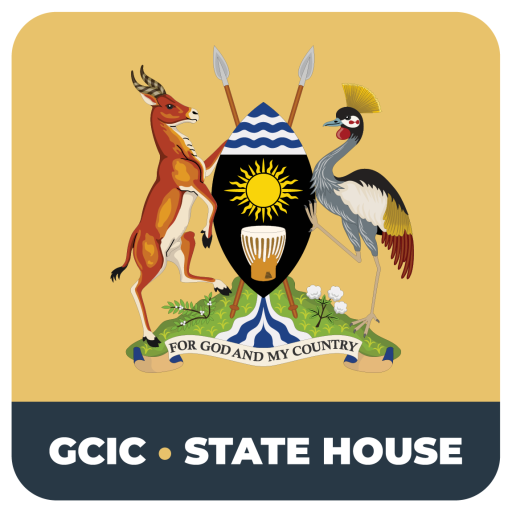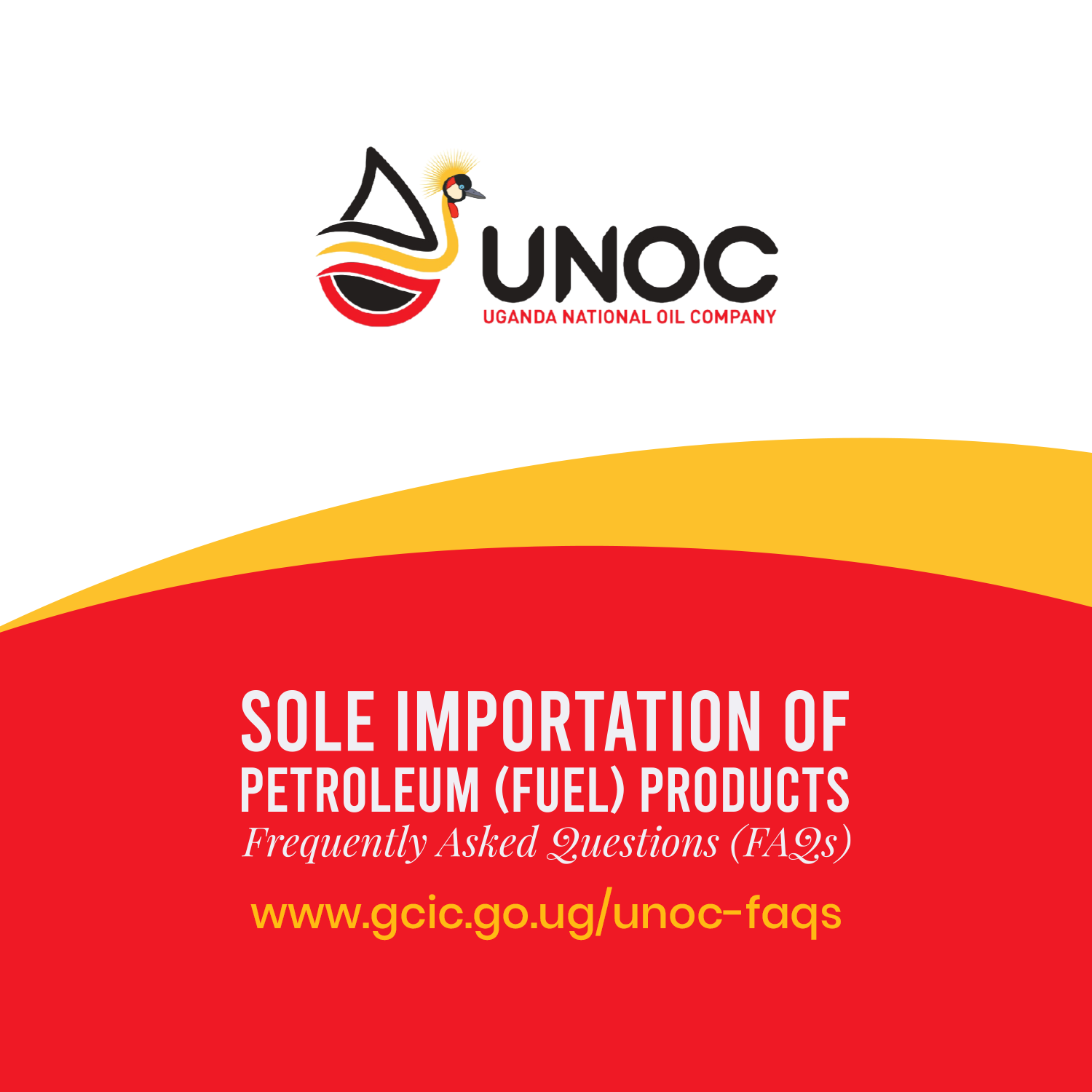President Yoweri Museveni has distinguished himself as a global champion of “operation harmony.” His role as a peace mediator has been a defining aspect of his leadership. It has earned him a reputation as a stabilizing force in the often tumultuous region of East Africa and even beyond. During his time as president, the Uganda People’s Defence Forces (UPDF) has been key in maintaining peace and stability in the Democratic Republic of Congo, South Sudan, Somalia, Sierra Leone, Liberia and Central African Republic.
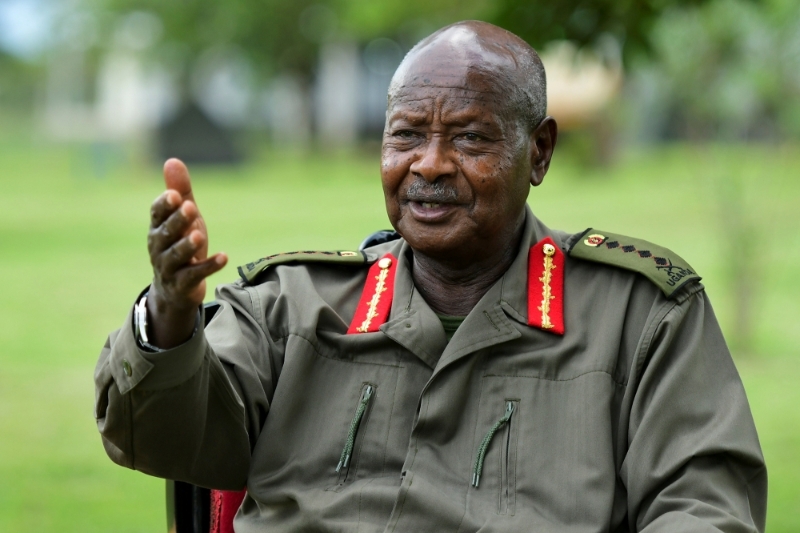
His mediation efforts span several decades and multiple conflict zones, highlighting his commitment to regional stability and peace. One of Museveni’s most significant contributions has been in South Sudan. Since its independence in 2011, South Sudan has been plagued by civil war. In 2015, Museveni played a pivotal role in brokering the Agreement on the Resolution of the Conflict in South Sudan (ARCSS), which aimed to end the fighting and establish a transitional government.
Despite some setbacks, including the collapse of the agreement and renewed violence, Museveni’s persistent involvement has been crucial. His approach is often described as hands-on and direct, reminiscent of an elder statesman who knows the terrain well. His depth in history has been an important factor in mediating between warring factions successfully. Just recently, while chairing this year’s 1218th meeting of the African Union’s (AU) Peace and Security Council (PSC), President Museveni decried identity politics between Africans vs Arabs; and Muslims vs. Christians in South Sudan that have caused the unending conflict. He stressed the need to desist from using force but instead advised on the use of dialogue to address conflict.
Museveni’s mediation efforts extend to Burundi, where he was appointed by the East African Community (EAC) to mediate the political crisis following President Pierre Nkurunziza’s controversial third-term bid in 2015. While the crisis remains unresolved, Museveni’s involvement brought international attention and pressure, highlighting his role as a regional peacemaker. His style here can be likened to a diplomatic juggler, balancing various interests and factions while trying to keep the peace process moving forward. In the Democratic Republic of Congo, Museveni has also been an influential figure, advocating for regional solutions to the conflict. His efforts to foster dialogue between the Congolese government and rebel groups underscore his belief in African solutions to African problems. He has led several peace missions through deploying members of the UPDF to peace keeping missions in the region and beyond. His flagship open-door policy for the refugees is highlighted at the core of regional stability. He has kept Uganda generally stable for the longest time in the post-independence era. Museveni’s role as a peace mediator is marked by a pragmatic approach, combining direct engagement with a deep understanding of regional dynamics. His unique style, which includes a mix of firmness and humour, helps to build rapport and trust among conflicting parties. While challenges remain, his contributions to peace in Africa are significant and enduring.
Last year, President Yoweri Museveni proposed the formation of a committee under the African Peace Initiative to address the crisis in Ukraine. This initiative, spearheaded by African heads of state, aims to bring Ukraine and Russia to the negotiating table to end the ongoing war. Through this effort, the committee has engaged with both Russian and Ukrainian leaders, emphasizing the importance of dialogue and a peaceful resolution to the conflict. This initiative highlights President Museveni’s steadfast commitment to a dialogic approach to conflict resolution, not just within Uganda or Africa, but on a global scale. Museveni’s vision reflects his belief that diplomacy and open communication are essential tools for resolving even the most entrenched conflicts, reinforcing his reputation as a leader who values peace and stability above all else.
President Museveni is an advocate of an African-tailored justice system, where justice is served based on facts as opposed to legal mêlées; where justice is restorative in nature, rather than punitive. He has on several occasions called for traditional conflict-resolution methods like adjudication, mediation, reconciliation and negotiation. Of course, occasionally he has argued for “an eye for an eye” type of justice. The pre-colonial African community treasured values such as peace, harmony and mutual understanding. Such values eradicated impunity and helped Africans to live harmoniously. The president believes that the restoration of Kingdoms in the country was vital for promoting good cultural values and instilling good morals in society. He believes that good cultural practices are significant to the development of a nation.
Following the genocide in Rwanda, President Museveni’s efforts were instrumental in the restoration of peace in the country. Uganda was a safe haven for Rwandese refugees who had fled the country due to instability. The president’s efforts were instrumental in the restoration of Rwanda through his support of the Rwanda Patriotic Front (RPF). The President’s experience and wisdom as referred to by the leadership of the Intergovernmental Authority on Development (IGAD) have been instrumental in the restoration of peace and conflict resolution in South Sudan.
We cannot talk of Museveni’s contribution to the peace and stability of Uganda without highlighting his restoration of peace in the Acholi Sub-region in Northern Uganda after two decades of civil conflict between the Lord’s Resistance Army (LRA) and the Uganda People’s Defense Forces (UPDF). Even the elderly, deep in remote areas, when asked to talk about President Museveni will in unison say “Museveni brought peace.” Until 1986, the country had been unstable throughout the leadership of Idi Amin and Milton Obote. Museveni’s National Resistance Army (NRA) now NRM dedicated itself to restoring peace and stability in the country and it did just that.
Restoration of peace came with inclusivity in a more competitive political environment; allowing different political ideologies, improvement in the representation of women in leadership and education, and working together with religious and cultural leaders all played a significant role in restoring peace and unity among the people. Such an approach builds social cohesion and eliminates gaps that could cause conflicts.
The president has addressed root causes of conflicts including poverty through his economic reforms including; Structural Adjustment Programs (SAPs), privatization of state-owned enterprises, liberalization of trade and investments, fiscal and monetary reforms, agricultural reforms, human capital development and institutional reform. These reforms addressed the economic challenges of Uganda and the country was one of the fastest growing economies in Africa in the 1990s and early 2000s. The reforms improved public services, ultimately addressing some of the causes of conflicts including poor service delivery of healthcare and education.
Museveni’s success on the diplomatic front:
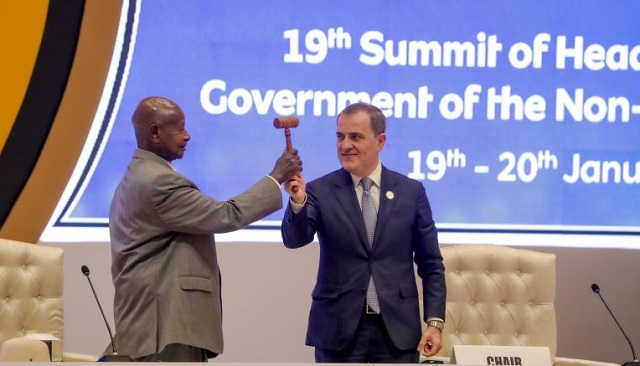
President Museveni’s diplomatic acumen has positioned Uganda as a key player in both regional and international arenas. His strategic approach to diplomacy has not only enhanced Uganda’s influence but also promoted stability and cooperation across Africa. One of Museveni’s diplomatic triumphs is maintaining harmonious relations with neighboring countries like Kenya, Tanzania, and Rwanda. Despite occasional tensions, Uganda has managed to foster a cooperative spirit within the East African Community (EAC).
Under Museveni’s leadership, Uganda has been a strong advocate for regional integration, pushing for initiatives such as the East African Federation, which aims to create a political and economic union of EAC member states. Museveni’s vision of a united East Africa is akin to that of a regional maestro orchestrating efforts of cooperation and development. He has nudged his counterparts to get the EAC federation going. Museveni’s diplomatic reach extends beyond Africa. Uganda’s significant contributions to international peacekeeping missions, particularly in Somalia under the African Union Mission in Somalia (AMISOM), have elevated its global standing. Uganda has been one of the largest troop contributors to AMISOM, playing a critical role in combating Al-Shabaab insurgents and stabilizing Somalia. This involvement underscores Uganda’s commitment to international peace and security.
President Museveni’s support of the Sudan People’s Liberation Movement (SPLM) in the 1990s and early 2000s was significant in the signing of the signing of the Comprehensive Peace Agreement (CPA) in 2005. The agreement later led to the independence of South Sudan in 2011. The president played a key role in fighting for the rights of the people of South Sudan. This made him a key player in the peace restoration in Africa. Later in 2013, Uganda became one of the countries to send its army to South Sudan following the outbreak of a civil war. Uganda’s troops protected President Salva Kiir and the people of South Sudan. President Museveni’s involvement in South Sudan’s peace talks saw the signing of a peace agreement in 2018. The president’s contributions to the restoration of peace and stability in South Sudan underscore his influence on peaceful outcomes in conflict zones in Africa and beyond.
Museveni’s international diplomacy often involves direct, sometimes blunt, communication. Him currently chairing the Non-Aligned Movement (NAM) is a testament to his unique diplomatic prowess that transcends borders. Museveni’s diplomacy isn’t without its colorful moments. His candid speeches at international forums have sometimes ruffled feathers, but they also reflect his straightforward approach. It’s as if he’s saying, “Let’s stop beating around the bush and address the real issues.” This forthrightness can be both refreshing and disarming, making him a memorable figure on the global stage. Domestically, Museveni’s diplomacy has also focused on economic partnerships. He has fostered strong ties with major global players such as China, Russia, UK, EU and the United States. Uganda’s participation in the Belt and Road Initiative with China has led to significant infrastructure development, including the construction of roads, railways, and energy projects. Meanwhile, Uganda’s relationship with the US, UK and the EU has brought substantial aid and investment, particularly in the health, education and climate change sectors. Uganda’s relationship with Russia has had dividends in security and other critical areas. Museveni’s ability to balance relationships with major powers reflects his adeptness at navigating complex international politics. As he has always said, he’s neither pro-East nor pro-West, but rather pro-Africa, pro-development.
In 2023, President Yoweri Museveni demonstrated his strength in contemporary diplomacy by conceptualizing a committee under the African Peace Initiative to address the crisis in Ukraine. This bold move, led by African heads of state, aims to bring Ukraine and Russia to the negotiating table to end the ongoing war. The initiative has successfully engaged both Russian and Ukrainian leaders, underscoring the critical importance of dialogue and peaceful resolution. Museveni’s leadership in this initiative showcases his ability to foster harmonious relations on a global scale. His proactive approach to diplomacy highlights not only his commitment to peace and stability but also his capacity to positively influence international affairs without a doubt. By championing this effort, Museveni reinforces his role as a key figure in contemporary diplomacy, advocating for cooperation and mutual understanding as the foundation for resolving conflicts worldwide.
On a different note, President Museveni has occasionally spoken about Climate Change contributing to the global debate on the crisis. Even though Uganda is one of the least emitters of CO2, the president has often rallied with global actors to call for the reduction of human activities like deforestation and the drainage of wetlands. The president has occasionally called on the developed countries to support African developing countries with resources and finances to address climate change. He has often called upon Ugandans Climate Change Initiatives: Museveni has taken a proactive stance on climate change, advocating for greater support for African countries in international climate negotiations. He has called for more equitable climate financing and technology transfer to help Africa adapt to the impacts of climate change. Uganda hosted the Climate Change and Development in Africa (CCDA) conference in 2010, signalling the country’s commitment to this global challenge.
Museveni’s forgiving heart nurturing peace:
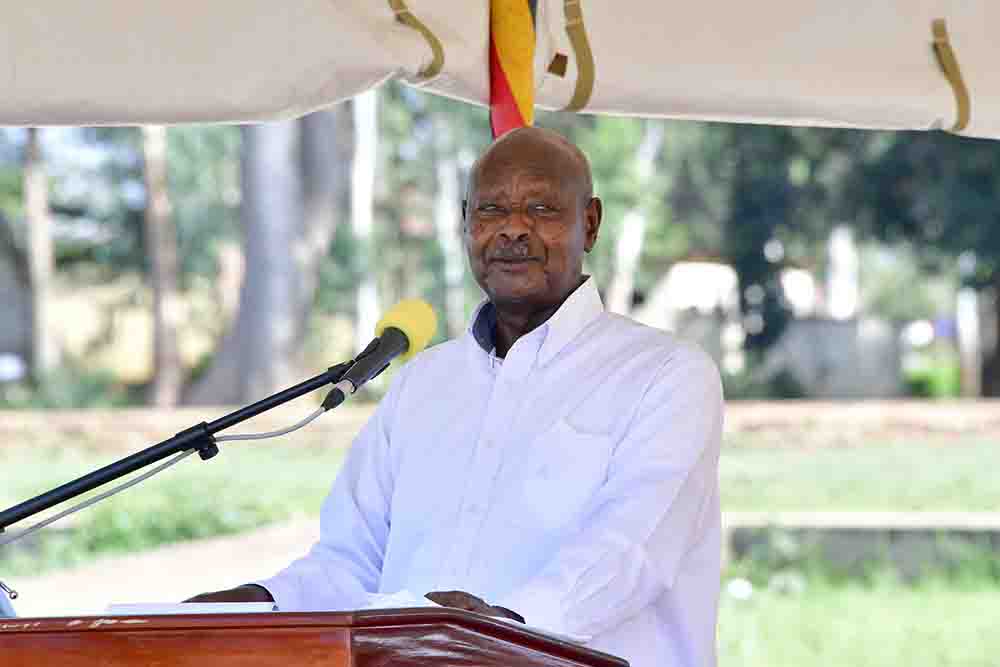
President Museveni’s leadership is characterized by his pragmatic approach to reconciliation and forgiveness, key elements in his strategy to nurture peace and stability in Uganda. His ability to extend an olive branch to former adversaries has been instrumental in healing national wounds and fostering unity. A prime example of Museveni’s forgiving nature is his approach to dealing with former rebels. The 2000 Amnesty Act, which offered a framework for rebels to surrender and reintegrate into society, has been a cornerstone of his reconciliation efforts. This policy has seen thousands of former combatants lay down their arms and return to civilian life, significantly contributing to peace, especially in regions like Northern Uganda. Museveni’s approach here is akin to a wise elder saying, “Come back home; there’s always room at the table for you.” His frequent engagements with former rebels often involve personal meetings and assurances, showing his commitment to their reintegration. Museveni’s ability to forgive extends to high-profile political adversaries. He has often incorporated former opponents into his government, fostering a sense of inclusivity and demonstrating that bygones can indeed be bygones. For instance, former Lord’s Resistance Army (LRA) commanders have been offered amnesty and roles in public life, provided they renounce violence. This inclusive approach has been pivotal in breaking the cycle of violence and building a more cohesive society. Museveni’s style sometimes involves a bit of humor, telling former foes, “We might not agree on everything, but at least we can agree on peace.”
Since becoming president, Museveni has consistently sought to engage and collaborate with the political opposition. From his earliest cabinet appointments in 1986, he has included members of the opposition, reflecting his commitment to inclusive governance. He introduced the Movement political system, which laid the foundation for Uganda’s governments of national unity. Even after Uganda transitioned to a multi-party system, President Museveni continued to appoint opposition members to key cabinet positions, despite the “winner-takes-all” nature of the political landscape. This approach underscores his belief in the importance of forgiveness, harmony, and working across political divides to build a cohesive and stable government.
In 2016, Amama Mbabazi, a longtime ally of the president stood against him in presidential elections. The president did not express any dislike towards his comrade and chose to maintain their friendship. The current Minister of Justice, Hon, Norbert Mao was for a long time a critic of the president. The president recognized him for his talent and wit, appointing him as the Minister of Justice. This is a characteristic of a leader who puts the people first. The president has been on several occasions presented in all kinds of humorous ways on social media. Ugandans have altered their images and videos to suit all kinds of agendas. He has not punished them. He often says Uganda is so democratic that people are chaotic.
The president pardoned prominent political leaders caught in the Commonwealth Heads of Government Meeting (CHOGM) corruption scandal. Despite the accusations, the president forgave them and allowed them to continue serving the NRM government.
The President has also demonstrated the need to ask for forgiveness, a rare virtue. In 2023, while addressing the people of Acholi, the president took responsibility for the mistakes made by those he entrusted with the power to implement government programs meant for the development of the region. He asked the people of Acholi to forgive the National Resistance Movement (NRM). By forgiving and asking for forgiveness, the president is showing that there is no need to embrace violence when mistakes are made, rather peaceful approaches for reconciliation.
However, Museveni’s forgiving nature has its critics. Some argue that his selective application of forgiveness can be politically motivated. Nonetheless, his efforts have yielded tangible results in terms of peace and stability. For instance, the peace process with the LRA, although prolonged and challenging, eventually led to significant reductions in violence and improved security in affected regions. Museveni’s pragmatic approach often involves a mix of firmness and empathy, a combination that has proved effective in dealing with complex conflicts. Museveni’s understanding of forgiveness as a tool for peace is deeply rooted in his experiences as a guerrilla leader. Having fought in the bush and later transitioned to political leadership, he understands the importance of reconciliation in building a stable nation. His anecdotes, often shared in public speeches, reflect this journey and resonate with many Ugandans.
Museveni as a Pan-Africanist:
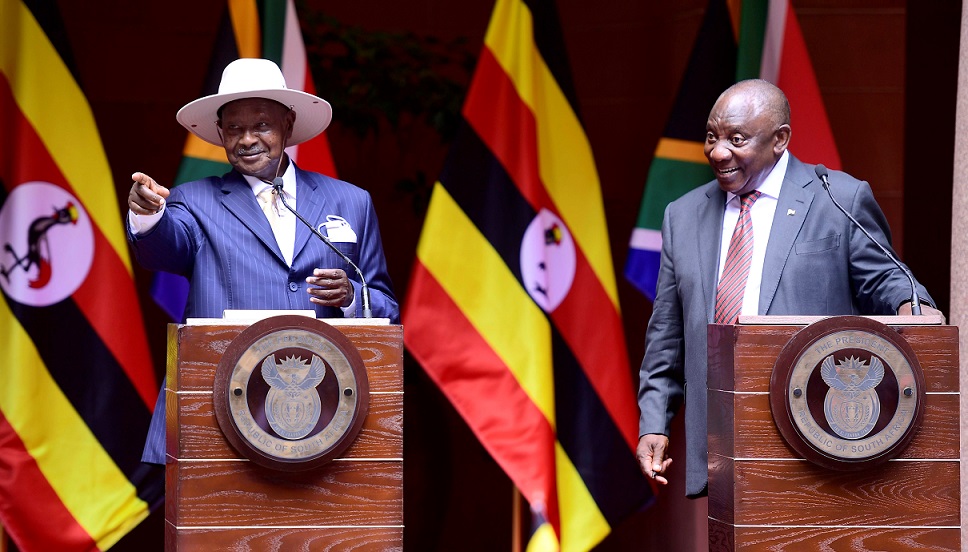
If you were to wake President Museveni from a deep sleep and ask him to speak, there’s no doubt his topic of choice would be “Africa – Unity and Development.” I think the man practically dreams in Pan-Africanism! Often hailed as a true Pan-Africanist by fellow African heads of state, Museveni has been a relentless advocate for African unity and self-reliance since the 1960s. His passion for a united Africa isn’t just talk—it’s deeply ingrained in his belief that the continent’s true independence and prosperity can only be achieved through collective effort and solidarity. Museveni’s commitment to this cause is evident in Uganda’s active and enthusiastic participation in regional and continental organizations. Under his leadership, Uganda has been a strong supporter of the East African Community (EAC) and the African Union (AU), reflecting his dedication to fostering cooperation and unity across Africa. So, whether he’s wide awake or caught in a dream, Museveni’s unwavering focus remains on a united, prosperous Africa—a continent standing tall on the global stage, thanks to the collective strength of its people.
Museveni has often pushed for deeper integration within the EAC, advocating for the establishment of the East African Federation, which aims to create a political and economic union of member states. His vision of a united East Africa is akin to a regional cheerleader rallying the troops. He has been a consistent advocate for “Africa’s center of gravity.” Economic self-reliance is another cornerstone of Museveni’s Pan-Africanist ideology. He has frequently criticized reliance on foreign aid, arguing that African countries should harness their resources for development. His policies on agricultural modernization and industrialization aim to boost Uganda’s—and by extension, Africa’s—economic independence. Museveni often emphasizes the need for Africa to develop its own manufacturing capabilities, reducing dependence on imported goods. For instance, the president wonders why an African country would import beef and dairy products like buy milk, cheese, gee and butter; poultry products like chicken and eggs; fish, maize, beans, and peas, from Europe when they are being produced in surplus by neighbouring African countries. He has always called for the economic integration of African countries, underscoring the need for the development of physical infrastructure to link East-Central-West-Southern Africa for better trade. He often says that Africa’s survival lies in unity and as a Pan-Africanist, he takes the issue of African unity as a must. President Museveni, throughout his speeches on national and international fora, explains how Africa can work together to develop. The idea that African countries need to create market for each other’s goods but also negotiate third-party markets.
A country like Uganda, blessed with a rich mineral sector should be able to produce high-quality materials to make products that are imported. The example of the Ceramics Industry at Kapeeka, specializing in the production of ceramic tiles is an indicator that Uganda and Africa at large can use their natural resources to be self-dependent. The factory saves US$ 28.5 million in imports and brings in US$ 3.05 million in exports. The president has often emphasized the importance of the market in economic transformation. The president, while quoting the five factors of production by modern economists including land, labour, capital, entrepreneurship and knowledge added a sixth factor; the market. He believes that without a market, all those factors of production are irrelevant. That is why he emphasizes that African countries be united because a united society will support itself. He believes that Ugandans and Africans need a supra-tribal Ugandan market and the Pan-African market for their products to ensure prosperity for all. The president believes that without regional cooperation and unity, even foreign forces cannot make significant positive contributions to the continent.
Museveni’s Pan-Africanism also extends to issues of security and political stability. Uganda’s involvement in peacekeeping missions across Africa, particularly in Somalia under the African Union Mission in Somalia (AMISOM), reflects his belief in African solutions to African problems. Uganda’s significant contribution to AMISOM has been critical in combating terrorism and stabilizing Somalia.
President Museveni’s acceptance of refugees from all over East Africa shows his commitment to African values of living together in peace and harmony regardless of differences in colour, gender, religion and political affiliations and helping those in distress. Pan-Africanism demands that Africans care about the well-being of fellow Africans. Today, Uganda hosts over 1.5 million refugees due to its peace and stability. This, according to the president is not charity. It is a good strategy for the prosperity and well-being of all Africans. Uganda is now the fourth largest refugee-hosting country in the world and the first in Africa. The president is aware that refugees come with “understandable needs” including shelter, food, clothing, clean water, education and skills. Attaining some of these needs might cause conflicts with the host communities. The president occasionally advises that refugees grow seasonal crops and vegetables as opposed to perennial crops like coffee which might cause conflicts with the hosts. This shows that the president is cognizant of possible causes of conflicts between refugees and Indigenous Ugandans and he advocates for peaceful coexistence.
President Museveni has consistently argued that Africa’s economic stagnation is rooted in the failure to fully eliminate the unprofitable subsistence nature of our societies. The pre-capitalist hunter and food-gatherer communities were predominantly occupied with simply earning food using rudimentary means. It is his spirit of Pan-Africanism that prompts him to challenge fellow Africans to throw off the yoke of dependence on foreigners to guarantee Afro-centric prosperity and security. Just like from the lessons learnt from the Coronavirus that every Country’s chief concern is its own citizens. He rallies Africans to look out for their own interests. Africa has a big advantage of a growing market of 1 billion people that must be fully utilized through intra-trade.
Museveni’s humourous side:
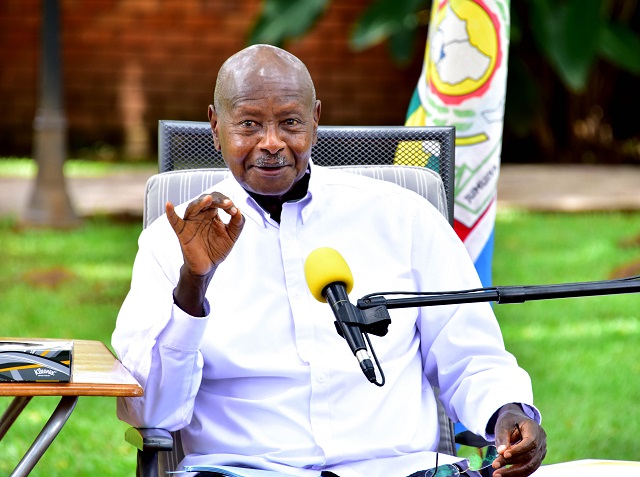
While President Museveni is often seen as a stern, no-nonsense leader, those who know him well speak of his humorous side—a trait that has endeared him to many and added a human touch to his leadership. Museveni’s speeches and public appearances often include witty remarks and anecdotes. His humor can be disarming, serving to lighten the mood even in tense situations. For instance, during political rallies, he’s been known to crack jokes that resonate with the local culture and context. Some people argue that if you don’t want to agree with Museveni, don’t dare appear before him for a conversation, because he will wittingly woo you towards his perspective. His playful banter extends to interactions with international leaders. Stories abound of Museveni sharing a laugh with fellow heads of state, often using humor to bridge cultural and political divides. His knowledge and understanding of many cultures and languages make his sense of humor more authentic. Museveni’s humor also manifests in his musical talents. Known for his impromptu performances, he often brings out his musical talent at public events, singing songs that carry both political messages, cultural messages and a touch of humor (the mpenkoni song). His musical interludes are a hit with the crowds, showing a lighter, more personable side of the veteran leader. Despite the serious nature of his job, Museveni’s ability to inject humor into his leadership helps to humanize his image. It’s a reminder that behind the political persona is a man who understands the power of a good laugh. His humor not only makes him relatable but also underscores his ability to connect with people on a personal level. Museveni’s humorous side is an integral part of his leadership style. It adds a unique dimension to his public persona, showing that even a seasoned statesman can have a light-hearted side. Whether through witty remarks, musical performances, or playful banter, Museveni’s humor helps to balance the gravity of his position with a touch of warmth and reliability.
By Crispin Kaheru.


